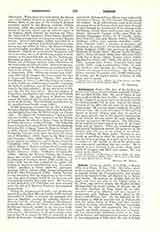

Sabran, LOUIS DE, Jesuit; b. in Paris, March 1, 1652; d. at Rome, January 22, 1732. His father, afterwards a marquis, was attached to the French embassy in London during the Commonwealth, and piously visited the martyrs Corby and Duckett (q.v.) before their deaths. He married an English lady (a Goring?), and Louis was sent to the English college of St. Omer, and entered among the English Jesuits. Distinguished for many talents, he became one of the royal chaplains to King James II, in 1685, preached with great diligence and was engaged in controversy with William Sherlock, dean of St. Paul’s, and Edward Gee. On the outbreak of the Revolution in 1688 he was first sent to Portsmouth with the infant Prince of Wales, and then became involved in many adventures. He was repeatedly seized by the mob and maltreated, but as often escaped, and finally managed to slip over to France. He was subsequently appointed visitor of the Neapolitan Jesuits, and represented his province at Rome in the congregation of 1693, when the case of Father Gonzàlez (q.v.) was discussed. In 1699 the Prince-Bishop of Liege appointed him president of his episcopal seminary, which excited a furious attack from the Jansenistic party, and the bishop had to enforce order with soldiers. But once the crisis was past, Father Sabran’s rule became perfectly successful, and in 1708 or 1709, he was made provincial. He then wrote to Father Medcalfe, a Jesuit in the North, about the progress of Jansenism, but his letter was intercepted, and was declared by some to portend that he intended to gain possession of Douai College, as he had done that of Liège. A long-drawn and somewhat bitter controversy ensued. After his provincialship he became rector of St. Omer (1712-5), then spiritual director at the English College, Rome, till death. The titles of his controversial tracts, will be found in Sommervogel, and he is alleged to have written a paper “Artes Bajanae” about 1701 against Jansenism.
J. H. POLLEN

